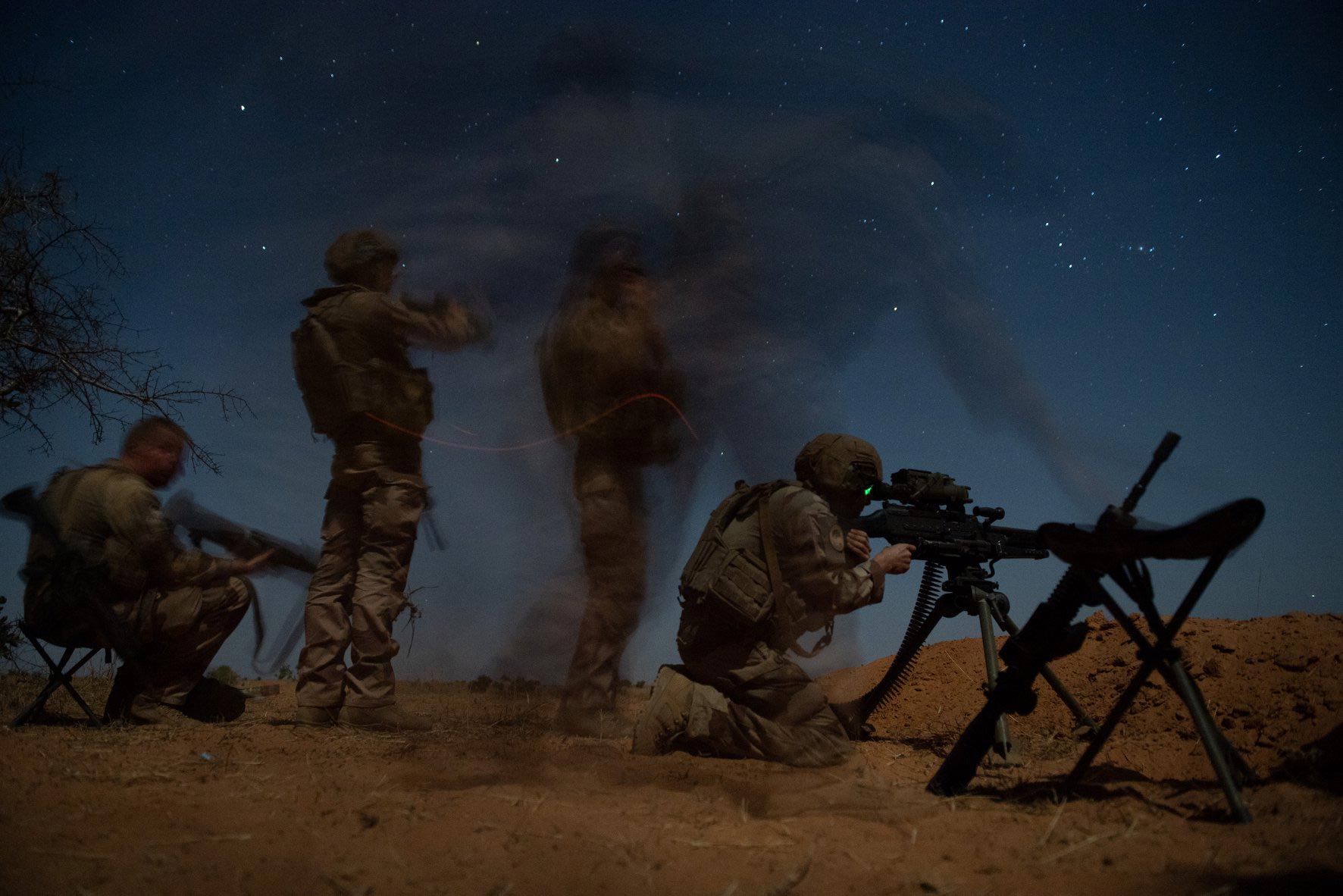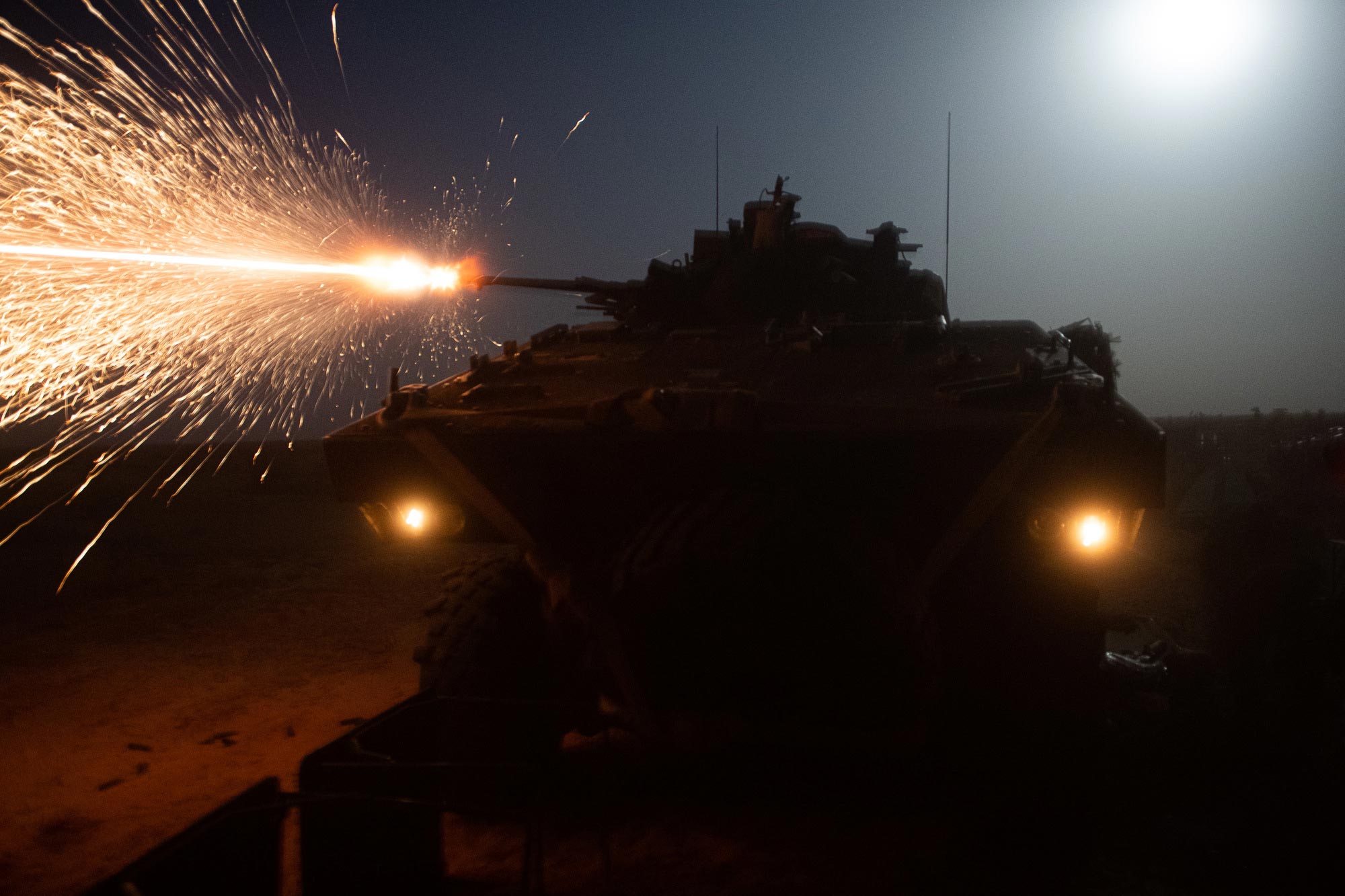France and Sahel partner forces conduct ‘unprecedented’ operation in Burkina Faso and Mali17-day operation combined 1,400 troops from France, the G5 Sahel Joint Force, Burkina Faso, Mali and Niger
Forces from the France-led Operation Barkhane and its partner forces in the Sahel region of central Africa carried out an ‘unprecedented’ 17-day operation against ‘armed terrorist groups’ in Burkina Faso and Mali.
Between November 1 and 17, “the G5 Sahel Joint Force, the Armed Forces of Burkina Faso (FABF) and the Malian Armed Forces (FAMa), supported by Desert Battle Group ‘Steel’ conducted Operation Bourgou IV in the Déou area of Burkina Faso and Boulikessi area of Mali, the French Armed Forces ministry said in a Monday, November 18 release.
More than 1,400 soldiers from Burkina Faso, Mali, Niger and France took part in the operation, and more than half of those involved were from partner forces, “which represents an unprecedented participation in an operation of this magnitude,” the ministry said.
Operation Bourgou IV “resulted in 24 individuals, being put out of action,” and the seizure of 64 vehicles, around 100 phones, and ammunition.
Carried out simultaneously in Mali and Burkina Faso, the operation aimed to disrupt the logistics of “armed terrorist groups” and hinder their activity in the region.
FABF and the Barkhane force conducted reconnaissance in the Tofagala forest in northeast Burkina Faso, taking control of dozens of camps there and confirming the presence of armed terrorist groups, the ministry said.
On the night of November 7-8, a temporary base for Burkinabé and Barkhane forces was “harassed by armed terrorist groups,” the ministry said.
“Enemy combatants” were spotted a few hundred metres from the base, and warning shots were fired “to deter them from undertaking any attack.”
On its Facebook page, the French armed forces said 25mm cannon warning shots and 81mm mortar flare shells were fired were fired between 7 p.m. and midnight, but at about 1:30 a.m, a column of pick-up trucks was observed moving towards the temporary base.

French soldiers work to deter an attack on a temporary Barkhane base in Burkina Faso during Operation Bourgou IV, November 2019.

A French VBCI armored infantry fighting vehicle fires its 25 mm cannon to deter an attack on a temporary Barkhane base in Burkina Faso during Operation Bourgou IV, November 2019.
“A column of pick-up trucks that began its advance towards the bases” and was fired on by 25 mm cannon, machine guns, mortars and light infantry weapons, “forcing it to stop its assault and exfiltrate itself,” the ministry said.
In Mali, partner forces supported by Barkhane “contributed to the strengthening of the defences of the Boulikessi post.” Forests in the area were searched, “undermining the logistics of armed terrorist groups and hampering their supply chain.”
In Iate September, at least 40 Malian soldiers were killed in simultaneous raids claimed by al-Qaeda-linked JNIM in Boulikessi and Mondoro, near central Mali’s border with Burkina Faso, one of the deadliest attacks against Mali’s military in recent insurgent violence. The troops were from a battalion under G5 Sahel Joint Force command.
Former colonial power France has been trying to build international support for a new military force to work alongside its 4,500-strong Operation Barkhane counter-terrorism mission in the Sahel.
French plans for a new international special operations task force for the Sahel were first reported in early October, and on November 5, Armed Forces Minister Florence Parly said that France expected the new force – dubbed “Takuba” – to deploy in Mali by 2020. Around a dozen European states “have expressed an interest in taking part in this initiative,” a French Armed Forces spokesperson said.
Estonia is the first partner to confirm a special operations forces deployment to Takuba. A defense ministry spokesperson told The Defense Post that special forces will deploy to Mali in the second half of 2020 and that force will ‘assist, advise and accompany’ the Malian Armed Forces.
Last week, senior officials said the United States is seeking a meeting of the Coalition against ISIS early in 2020 to focus on threats in West Africa and the Sahel.
International operations in the Sahel
In 2012 a Tuareg separatist uprising against the state was exploited by Islamist extremists linked to al-Qaeda who took key cities in Mali’s desert north.
France began its Operation Serval military intervention in its former colony early the next year, driving the jihadists from the towns, and the MINUSMA peacekeeping force was then established.
But the militant groups have morphed into more nimble formations operating in rural areas, and the insurgency has gradually spread to central and southern regions of Mali and across the borders into neighboring Burkina Faso and Niger. Large swathes of Mali remain outside government control, and inter-ethnic bloodshed is a regular occurrence.
The U.N. says that since January more than 1,500 civilians have been killed in Burkina Faso and Mali, and more than one million people have been internally displaced across the five Sahel states – more than twice the number displaced in 2018. Access has become increasingly difficult, but 12 million people are in need of humanitarian assistance.
Many armed groups are active in the Sahel region, including Islamic State-affiliated groups, but the majority of attacks are attributed to JNIM, which formed in March 2017 from a merger of several smaller groups including the Sahara branch of al-Qaeda in the Islamic Maghreb, Ansar Dine and al-Mourabitoun. JNIM’s leadership has pledged allegiance to al-Qaeda leader Ayman al-Zawahiri.
The Serval mission evolved in August 2014 into Operation Barkhane, and roughly 4,500 French troops are deployed in the region, including around 2,700 soldiers in Mali.
But Barkhane has a growing international dimension, with European partners sending more troops and equipment. Denmark is to send two helicopters and up to 70 troops to support Barkhane in December and Estonia is to almost double the size of its Barkhane contingent in 2020. Chinook helicopters from the United Kingdom currently support the operation.
Operation Barkhane focuses activity in insurgent-hit Mali, Niger and Burkina Faso, and troops work alongside other international operations, including the 14,000-strong MINUSMA U.N. stabilization mission in Mali and the G5 Sahel Joint Force (FCG5S), a planned 4,500-strong joint counter-terrorism force comprising troops from Burkina Faso, Chad, Mali, Niger and Mauritania.
Around 620 troops from 22 member states and five non-E.U. states work with the Malian Armed Forces and the FCG5S in European Union Training Mission – Mali, which has a mandate until May 2020. Around 14,000 FAMa personnel have been trained since the mission was established in 2013.
Earlier this month, AFRICOM said U.S. intelligence, surveillance, and reconnaissance flight operations had begun from Nigerien Air Base 201 in the northern city of Agadez.